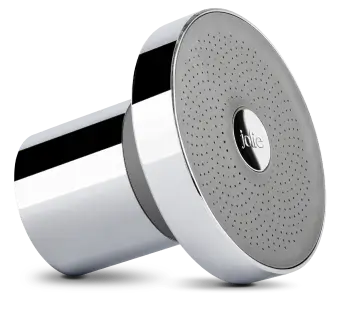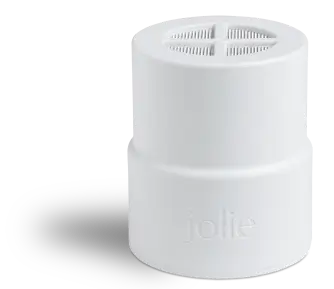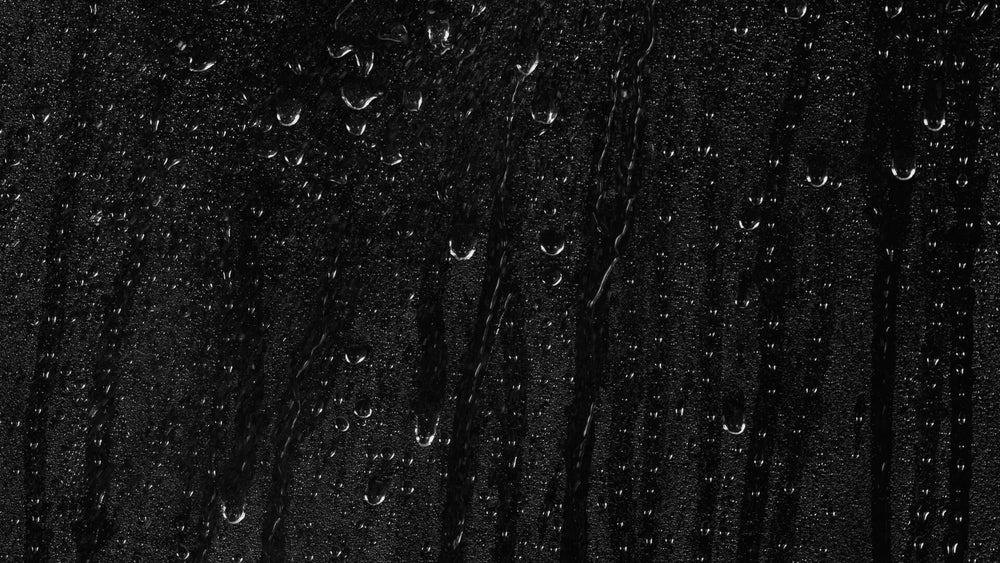window.productSubcriptionBundle = {"id":7285536194717,"title":"The Jolie Filtered Showerhead (With Subscription)","handle":"test-dev-the-filtered-showerhead","description":"\u003cmeta charset=\"utf-8\"\u003e\n\u003cdiv data-mce-fragment=\"1\" class=\"font-body font-light text-sm lg:text-base text-black mt-4 max-w-sm mx-auto\"\u003eThe most fundamental part of your daily routine, The Jolie Filtered Showerhead removes chlorine, heavy metals and other chemicals from your water for better skin, hair, and wellbeing.\u003c\/div\u003e\n\u003cdiv data-mce-fragment=\"1\" class=\"flex flex-col justify-center items-center mt-8\"\u003e\n\u003cdiv data-mce-fragment=\"1\" class=\"flex items-center\"\u003e\u003c\/div\u003e\n\u003c\/div\u003e","published_at":"2022-02-17T07:02:15-05:00","created_at":"2022-02-17T07:02:15-05:00","vendor":"Jolie","type":"Health \u0026 Beauty","tags":["TryNowAutomated","Verishop"],"price":12200,"price_min":12200,"price_max":12200,"available":true,"price_varies":false,"compare_at_price":15200,"compare_at_price_min":15200,"compare_at_price_max":16500,"compare_at_price_varies":true,"variants":[{"id":41980490547357,"title":"Brushed Steel","option1":"Brushed Steel","option2":null,"option3":null,"sku":"SHWR-BS-850036402084-S","requires_shipping":true,"taxable":true,"featured_image":{"id":40028927983909,"product_id":7285536194717,"position":2,"created_at":"2022-12-01T15:06:19-05:00","updated_at":"2025-06-25T06:41:01-04:00","alt":null,"width":1080,"height":1080,"src":"\/\/jolieskinco.com\/cdn\/shop\/products\/Steel_Taupe.png?v=1750848061","variant_ids":[41980490547357]},"available":true,"name":"The Jolie Filtered Showerhead (With Subscription) - Brushed Steel","public_title":"Brushed Steel","options":["Brushed Steel"],"price":12200,"weight":1588,"compare_at_price":15200,"inventory_management":"shopify","barcode":"","featured_media":{"alt":null,"id":32355953901861,"position":2,"preview_image":{"aspect_ratio":1.0,"height":1080,"width":1080,"src":"\/\/jolieskinco.com\/cdn\/shop\/products\/Steel_Taupe.png?v=1750848061"}},"requires_selling_plan":false,"selling_plan_allocations":[{"price_adjustments":[{"position":1,"price":15200},{"position":2,"price":3500}],"price":15200,"compare_at_price":12200,"per_delivery_price":15200,"selling_plan_id":811663517,"selling_plan_group_id":"85bf976274e79b5cb3c67862bffb70a7c0e566dd"}],"quantity_rule":{"min":1,"max":null,"increment":1}},{"id":41980490580125,"title":"Modern Chrome","option1":"Modern Chrome","option2":null,"option3":null,"sku":"SHWR-MC-850036402091-S","requires_shipping":true,"taxable":true,"featured_image":{"id":40028920054053,"product_id":7285536194717,"position":1,"created_at":"2022-12-01T15:05:01-05:00","updated_at":"2024-02-05T16:47:55-05:00","alt":null,"width":1080,"height":1080,"src":"\/\/jolieskinco.com\/cdn\/shop\/products\/SideAngle-Chrome_Grey.png?v=1707169675","variant_ids":[41980490580125]},"available":true,"name":"The Jolie Filtered Showerhead (With Subscription) - Modern Chrome","public_title":"Modern Chrome","options":["Modern Chrome"],"price":12200,"weight":1588,"compare_at_price":16500,"inventory_management":"shopify","barcode":"850036402091","featured_media":{"alt":null,"id":32355945578789,"position":1,"preview_image":{"aspect_ratio":1.0,"height":1080,"width":1080,"src":"\/\/jolieskinco.com\/cdn\/shop\/products\/SideAngle-Chrome_Grey.png?v=1707169675"}},"requires_selling_plan":false,"selling_plan_allocations":[{"price_adjustments":[{"position":1,"price":15200},{"position":2,"price":3500}],"price":15200,"compare_at_price":12200,"per_delivery_price":15200,"selling_plan_id":811663517,"selling_plan_group_id":"85bf976274e79b5cb3c67862bffb70a7c0e566dd"}],"quantity_rule":{"min":1,"max":null,"increment":1}},{"id":41980490678429,"title":"Jet Black","option1":"Jet Black","option2":null,"option3":null,"sku":"SHWR-JB-850036402077-S","requires_shipping":true,"taxable":true,"featured_image":{"id":32105386967197,"product_id":7285536194717,"position":4,"created_at":"2022-02-17T07:02:32-05:00","updated_at":"2025-06-25T06:41:01-04:00","alt":null,"width":3648,"height":3648,"src":"\/\/jolieskinco.com\/cdn\/shop\/products\/Jolie_Filtered_Showerhead_-_Side-6_da94b1ee-8d42-4ccf-aea8-f58067b053af.jpg?v=1750848061","variant_ids":[41980490678429]},"available":true,"name":"The Jolie Filtered Showerhead (With Subscription) - Jet Black","public_title":"Jet Black","options":["Jet Black"],"price":12200,"weight":1588,"compare_at_price":16500,"inventory_management":"shopify","barcode":"","featured_media":{"alt":null,"id":24413041459357,"position":4,"preview_image":{"aspect_ratio":1.0,"height":3648,"width":3648,"src":"\/\/jolieskinco.com\/cdn\/shop\/products\/Jolie_Filtered_Showerhead_-_Side-6_da94b1ee-8d42-4ccf-aea8-f58067b053af.jpg?v=1750848061"}},"requires_selling_plan":false,"selling_plan_allocations":[{"price_adjustments":[{"position":1,"price":15200},{"position":2,"price":3500}],"price":15200,"compare_at_price":12200,"per_delivery_price":15200,"selling_plan_id":811663517,"selling_plan_group_id":"85bf976274e79b5cb3c67862bffb70a7c0e566dd"}],"quantity_rule":{"min":1,"max":null,"increment":1}},{"id":45569197474085,"title":"Brushed Gold","option1":"Brushed Gold","option2":null,"option3":null,"sku":"SHWR-BG-850036402206","requires_shipping":true,"taxable":true,"featured_image":{"id":46164855554341,"product_id":7285536194717,"position":3,"created_at":"2024-05-16T09:57:47-04:00","updated_at":"2025-06-25T06:41:01-04:00","alt":null,"width":3360,"height":2241,"src":"\/\/jolieskinco.com\/cdn\/shop\/files\/BrushedGold.png?v=1750848061","variant_ids":[45569197474085]},"available":true,"name":"The Jolie Filtered Showerhead (With Subscription) - Brushed Gold","public_title":"Brushed Gold","options":["Brushed Gold"],"price":12200,"weight":1588,"compare_at_price":16500,"inventory_management":"shopify","barcode":"850036402206","featured_media":{"alt":null,"id":38800978084133,"position":3,"preview_image":{"aspect_ratio":1.499,"height":2241,"width":3360,"src":"\/\/jolieskinco.com\/cdn\/shop\/files\/BrushedGold.png?v=1750848061"}},"requires_selling_plan":false,"selling_plan_allocations":[{"price_adjustments":[{"position":1,"price":15200},{"position":2,"price":3500}],"price":15200,"compare_at_price":12200,"per_delivery_price":15200,"selling_plan_id":811663517,"selling_plan_group_id":"85bf976274e79b5cb3c67862bffb70a7c0e566dd"}],"quantity_rule":{"min":1,"max":null,"increment":1}},{"id":47893025128741,"title":"Vibrant Red","option1":"Vibrant Red","option2":null,"option3":null,"sku":"SHWR-VR-850036402220-S","requires_shipping":true,"taxable":true,"featured_image":{"id":32105386868893,"product_id":7285536194717,"position":5,"created_at":"2022-02-17T07:02:32-05:00","updated_at":"2025-06-25T06:41:01-04:00","alt":null,"width":3648,"height":3648,"src":"\/\/jolieskinco.com\/cdn\/shop\/products\/Jolie_Filtered_Showerhead_-_Side-3_c5ad9762-ec00-4b42-86b3-ca599db1fb47.jpg?v=1750848061","variant_ids":[47893025128741]},"available":true,"name":"The Jolie Filtered Showerhead (With Subscription) - Vibrant Red","public_title":"Vibrant Red","options":["Vibrant Red"],"price":12200,"weight":1588,"compare_at_price":16500,"inventory_management":"shopify","barcode":"850036402220","featured_media":{"alt":null,"id":24413041361053,"position":5,"preview_image":{"aspect_ratio":1.0,"height":3648,"width":3648,"src":"\/\/jolieskinco.com\/cdn\/shop\/products\/Jolie_Filtered_Showerhead_-_Side-3_c5ad9762-ec00-4b42-86b3-ca599db1fb47.jpg?v=1750848061"}},"requires_selling_plan":false,"selling_plan_allocations":[{"price_adjustments":[{"position":1,"price":15200},{"position":2,"price":3500}],"price":15200,"compare_at_price":12200,"per_delivery_price":15200,"selling_plan_id":811663517,"selling_plan_group_id":"85bf976274e79b5cb3c67862bffb70a7c0e566dd"}],"quantity_rule":{"min":1,"max":null,"increment":1}}],"images":["\/\/jolieskinco.com\/cdn\/shop\/products\/SideAngle-Chrome_Grey.png?v=1707169675","\/\/jolieskinco.com\/cdn\/shop\/products\/Steel_Taupe.png?v=1750848061","\/\/jolieskinco.com\/cdn\/shop\/files\/BrushedGold.png?v=1750848061","\/\/jolieskinco.com\/cdn\/shop\/products\/Jolie_Filtered_Showerhead_-_Side-6_da94b1ee-8d42-4ccf-aea8-f58067b053af.jpg?v=1750848061","\/\/jolieskinco.com\/cdn\/shop\/products\/Jolie_Filtered_Showerhead_-_Side-3_c5ad9762-ec00-4b42-86b3-ca599db1fb47.jpg?v=1750848061","\/\/jolieskinco.com\/cdn\/shop\/files\/Guava_Red.webp?v=1750848061"],"featured_image":"\/\/jolieskinco.com\/cdn\/shop\/products\/SideAngle-Chrome_Grey.png?v=1707169675","options":["Color"],"media":[{"alt":null,"id":32355945578789,"position":1,"preview_image":{"aspect_ratio":1.0,"height":1080,"width":1080,"src":"\/\/jolieskinco.com\/cdn\/shop\/products\/SideAngle-Chrome_Grey.png?v=1707169675"},"aspect_ratio":1.0,"height":1080,"media_type":"image","src":"\/\/jolieskinco.com\/cdn\/shop\/products\/SideAngle-Chrome_Grey.png?v=1707169675","width":1080},{"alt":null,"id":32355953901861,"position":2,"preview_image":{"aspect_ratio":1.0,"height":1080,"width":1080,"src":"\/\/jolieskinco.com\/cdn\/shop\/products\/Steel_Taupe.png?v=1750848061"},"aspect_ratio":1.0,"height":1080,"media_type":"image","src":"\/\/jolieskinco.com\/cdn\/shop\/products\/Steel_Taupe.png?v=1750848061","width":1080},{"alt":null,"id":38800978084133,"position":3,"preview_image":{"aspect_ratio":1.499,"height":2241,"width":3360,"src":"\/\/jolieskinco.com\/cdn\/shop\/files\/BrushedGold.png?v=1750848061"},"aspect_ratio":1.499,"height":2241,"media_type":"image","src":"\/\/jolieskinco.com\/cdn\/shop\/files\/BrushedGold.png?v=1750848061","width":3360},{"alt":null,"id":24413041459357,"position":4,"preview_image":{"aspect_ratio":1.0,"height":3648,"width":3648,"src":"\/\/jolieskinco.com\/cdn\/shop\/products\/Jolie_Filtered_Showerhead_-_Side-6_da94b1ee-8d42-4ccf-aea8-f58067b053af.jpg?v=1750848061"},"aspect_ratio":1.0,"height":3648,"media_type":"image","src":"\/\/jolieskinco.com\/cdn\/shop\/products\/Jolie_Filtered_Showerhead_-_Side-6_da94b1ee-8d42-4ccf-aea8-f58067b053af.jpg?v=1750848061","width":3648},{"alt":null,"id":24413041361053,"position":5,"preview_image":{"aspect_ratio":1.0,"height":3648,"width":3648,"src":"\/\/jolieskinco.com\/cdn\/shop\/products\/Jolie_Filtered_Showerhead_-_Side-3_c5ad9762-ec00-4b42-86b3-ca599db1fb47.jpg?v=1750848061"},"aspect_ratio":1.0,"height":3648,"media_type":"image","src":"\/\/jolieskinco.com\/cdn\/shop\/products\/Jolie_Filtered_Showerhead_-_Side-3_c5ad9762-ec00-4b42-86b3-ca599db1fb47.jpg?v=1750848061","width":3648},{"alt":null,"id":39989746991397,"position":6,"preview_image":{"aspect_ratio":1.499,"height":2241,"width":3360,"src":"\/\/jolieskinco.com\/cdn\/shop\/files\/Guava_Red.webp?v=1750848061"},"aspect_ratio":1.499,"height":2241,"media_type":"image","src":"\/\/jolieskinco.com\/cdn\/shop\/files\/Guava_Red.webp?v=1750848061","width":3360}],"requires_selling_plan":false,"selling_plan_groups":[{"id":"85bf976274e79b5cb3c67862bffb70a7c0e566dd","name":"The Jolie Filtered Showerhead (with subscription)","options":[{"name":"Filters delivered \u0026 billed every 3 months, starting 3 months after receiving your Jolie","position":1,"values":["The Filtered Showerhead (with subscription)"]}],"selling_plans":[{"id":811663517,"name":"Filters delivered \u0026 billed every 3 months, starting 3 months after receiving your Jolie","description":"","options":[{"name":"Filters delivered \u0026 billed every 3 months, starting 3 months after receiving your Jolie","position":1,"value":"The Filtered Showerhead (with subscription)"}],"recurring_deliveries":true,"price_adjustments":[{"order_count":1,"position":1,"value_type":"price","value":15200},{"order_count":null,"position":2,"value_type":"price","value":3500}],"checkout_charge":{"value_type":"percentage","value":100}}],"app_id":"4836205"}],"content":"\u003cmeta charset=\"utf-8\"\u003e\n\u003cdiv data-mce-fragment=\"1\" class=\"font-body font-light text-sm lg:text-base text-black mt-4 max-w-sm mx-auto\"\u003eThe most fundamental part of your daily routine, The Jolie Filtered Showerhead removes chlorine, heavy metals and other chemicals from your water for better skin, hair, and wellbeing.\u003c\/div\u003e\n\u003cdiv data-mce-fragment=\"1\" class=\"flex flex-col justify-center items-center mt-8\"\u003e\n\u003cdiv data-mce-fragment=\"1\" class=\"flex items-center\"\u003e\u003c\/div\u003e\n\u003c\/div\u003e"};
window.productSubcriptionBundleWithWrapper = {"id":10273261158693,"title":"The Jolie Filtered Showerhead (With Subscription)","handle":"the-jolie-filtered-showerhead-with-subscription","description":"\u003cmeta charset=\"utf-8\"\u003e\n\u003cdiv data-mce-fragment=\"1\" class=\"font-body font-light text-sm lg:text-base text-black mt-4 max-w-sm mx-auto\"\u003eThe most fundamental part of your daily routine, The Jolie Filtered Showerhead removes chlorine, heavy metals and other chemicals from your water for better skin, hair, and wellbeing.\u003c\/div\u003e\n\u003cdiv data-mce-fragment=\"1\" class=\"flex flex-col justify-center items-center mt-8\"\u003e\n\u003cdiv data-mce-fragment=\"1\" class=\"flex items-center\"\u003e\u003c\/div\u003e\n\u003c\/div\u003e","published_at":"2025-11-27T17:14:06-05:00","created_at":"2025-11-27T15:51:08-05:00","vendor":"Jolie","type":"Health \u0026 Beauty","tags":["TryNowAutomated","Verishop"],"price":12200,"price_min":12200,"price_max":12200,"available":true,"price_varies":false,"compare_at_price":15200,"compare_at_price_min":15200,"compare_at_price_max":16500,"compare_at_price_varies":true,"variants":[{"id":51661581484325,"title":"Brushed Steel","option1":"Brushed Steel","option2":null,"option3":null,"sku":"SHWR-BS-850036402084-S-GIFT","requires_shipping":true,"taxable":true,"featured_image":{"id":40028927983909,"product_id":10273261158693,"position":2,"created_at":"2022-12-01T15:06:19-05:00","updated_at":"2025-06-25T06:41:01-04:00","alt":null,"width":1080,"height":1080,"src":"\/\/jolieskinco.com\/cdn\/shop\/products\/Steel_Taupe.png?v=1750848061","variant_ids":[51661581484325]},"available":true,"name":"The Jolie Filtered Showerhead (With Subscription) - Brushed Steel","public_title":"Brushed Steel","options":["Brushed Steel"],"price":12200,"weight":1588,"compare_at_price":15200,"inventory_management":"shopify","barcode":"","featured_media":{"alt":null,"id":32355953901861,"position":2,"preview_image":{"aspect_ratio":1.0,"height":1080,"width":1080,"src":"\/\/jolieskinco.com\/cdn\/shop\/products\/Steel_Taupe.png?v=1750848061"}},"requires_selling_plan":false,"selling_plan_allocations":[],"quantity_rule":{"min":1,"max":null,"increment":1}},{"id":51661581517093,"title":"Modern Chrome","option1":"Modern Chrome","option2":null,"option3":null,"sku":"SHWR-MC-850036402091-S-GIFT","requires_shipping":true,"taxable":true,"featured_image":{"id":40028920054053,"product_id":10273261158693,"position":1,"created_at":"2022-12-01T15:05:01-05:00","updated_at":"2024-02-05T16:47:55-05:00","alt":null,"width":1080,"height":1080,"src":"\/\/jolieskinco.com\/cdn\/shop\/products\/SideAngle-Chrome_Grey.png?v=1707169675","variant_ids":[51661581517093]},"available":true,"name":"The Jolie Filtered Showerhead (With Subscription) - Modern Chrome","public_title":"Modern Chrome","options":["Modern Chrome"],"price":12200,"weight":1588,"compare_at_price":16500,"inventory_management":"shopify","barcode":"850036402091","featured_media":{"alt":null,"id":32355945578789,"position":1,"preview_image":{"aspect_ratio":1.0,"height":1080,"width":1080,"src":"\/\/jolieskinco.com\/cdn\/shop\/products\/SideAngle-Chrome_Grey.png?v=1707169675"}},"requires_selling_plan":false,"selling_plan_allocations":[],"quantity_rule":{"min":1,"max":null,"increment":1}},{"id":51661581549861,"title":"Jet Black","option1":"Jet Black","option2":null,"option3":null,"sku":"SHWR-JB-850036402077-S-GIFT","requires_shipping":true,"taxable":true,"featured_image":{"id":32105386967197,"product_id":10273261158693,"position":4,"created_at":"2022-02-17T07:02:32-05:00","updated_at":"2025-06-25T06:41:01-04:00","alt":null,"width":3648,"height":3648,"src":"\/\/jolieskinco.com\/cdn\/shop\/products\/Jolie_Filtered_Showerhead_-_Side-6_da94b1ee-8d42-4ccf-aea8-f58067b053af.jpg?v=1750848061","variant_ids":[51661581549861]},"available":true,"name":"The Jolie Filtered Showerhead (With Subscription) - Jet Black","public_title":"Jet Black","options":["Jet Black"],"price":12200,"weight":1588,"compare_at_price":16500,"inventory_management":"shopify","barcode":"","featured_media":{"alt":null,"id":24413041459357,"position":4,"preview_image":{"aspect_ratio":1.0,"height":3648,"width":3648,"src":"\/\/jolieskinco.com\/cdn\/shop\/products\/Jolie_Filtered_Showerhead_-_Side-6_da94b1ee-8d42-4ccf-aea8-f58067b053af.jpg?v=1750848061"}},"requires_selling_plan":false,"selling_plan_allocations":[],"quantity_rule":{"min":1,"max":null,"increment":1}},{"id":51661581582629,"title":"Brushed Gold","option1":"Brushed Gold","option2":null,"option3":null,"sku":"SHWR-BG-850036402206-GIFT","requires_shipping":true,"taxable":true,"featured_image":{"id":46164855554341,"product_id":10273261158693,"position":3,"created_at":"2024-05-16T09:57:47-04:00","updated_at":"2025-06-25T06:41:01-04:00","alt":null,"width":3360,"height":2241,"src":"\/\/jolieskinco.com\/cdn\/shop\/files\/BrushedGold.png?v=1750848061","variant_ids":[51661581582629]},"available":true,"name":"The Jolie Filtered Showerhead (With Subscription) - Brushed Gold","public_title":"Brushed Gold","options":["Brushed Gold"],"price":12200,"weight":1588,"compare_at_price":16500,"inventory_management":"shopify","barcode":"850036402206","featured_media":{"alt":null,"id":38800978084133,"position":3,"preview_image":{"aspect_ratio":1.499,"height":2241,"width":3360,"src":"\/\/jolieskinco.com\/cdn\/shop\/files\/BrushedGold.png?v=1750848061"}},"requires_selling_plan":false,"selling_plan_allocations":[],"quantity_rule":{"min":1,"max":null,"increment":1}},{"id":51661581615397,"title":"Vibrant Red","option1":"Vibrant Red","option2":null,"option3":null,"sku":"SHWR-VR-850036402220-S-GIFT","requires_shipping":true,"taxable":true,"featured_image":{"id":32105386868893,"product_id":10273261158693,"position":5,"created_at":"2022-02-17T07:02:32-05:00","updated_at":"2025-06-25T06:41:01-04:00","alt":null,"width":3648,"height":3648,"src":"\/\/jolieskinco.com\/cdn\/shop\/products\/Jolie_Filtered_Showerhead_-_Side-3_c5ad9762-ec00-4b42-86b3-ca599db1fb47.jpg?v=1750848061","variant_ids":[51661581615397]},"available":true,"name":"The Jolie Filtered Showerhead (With Subscription) - Vibrant Red","public_title":"Vibrant Red","options":["Vibrant Red"],"price":12200,"weight":1588,"compare_at_price":16500,"inventory_management":"shopify","barcode":"850036402220","featured_media":{"alt":null,"id":24413041361053,"position":5,"preview_image":{"aspect_ratio":1.0,"height":3648,"width":3648,"src":"\/\/jolieskinco.com\/cdn\/shop\/products\/Jolie_Filtered_Showerhead_-_Side-3_c5ad9762-ec00-4b42-86b3-ca599db1fb47.jpg?v=1750848061"}},"requires_selling_plan":false,"selling_plan_allocations":[],"quantity_rule":{"min":1,"max":null,"increment":1}}],"images":["\/\/jolieskinco.com\/cdn\/shop\/products\/SideAngle-Chrome_Grey.png?v=1707169675","\/\/jolieskinco.com\/cdn\/shop\/products\/Steel_Taupe.png?v=1750848061","\/\/jolieskinco.com\/cdn\/shop\/files\/BrushedGold.png?v=1750848061","\/\/jolieskinco.com\/cdn\/shop\/products\/Jolie_Filtered_Showerhead_-_Side-6_da94b1ee-8d42-4ccf-aea8-f58067b053af.jpg?v=1750848061","\/\/jolieskinco.com\/cdn\/shop\/products\/Jolie_Filtered_Showerhead_-_Side-3_c5ad9762-ec00-4b42-86b3-ca599db1fb47.jpg?v=1750848061","\/\/jolieskinco.com\/cdn\/shop\/files\/Guava_Red.webp?v=1750848061"],"featured_image":"\/\/jolieskinco.com\/cdn\/shop\/products\/SideAngle-Chrome_Grey.png?v=1707169675","options":["Color"],"media":[{"alt":null,"id":32355945578789,"position":1,"preview_image":{"aspect_ratio":1.0,"height":1080,"width":1080,"src":"\/\/jolieskinco.com\/cdn\/shop\/products\/SideAngle-Chrome_Grey.png?v=1707169675"},"aspect_ratio":1.0,"height":1080,"media_type":"image","src":"\/\/jolieskinco.com\/cdn\/shop\/products\/SideAngle-Chrome_Grey.png?v=1707169675","width":1080},{"alt":null,"id":32355953901861,"position":2,"preview_image":{"aspect_ratio":1.0,"height":1080,"width":1080,"src":"\/\/jolieskinco.com\/cdn\/shop\/products\/Steel_Taupe.png?v=1750848061"},"aspect_ratio":1.0,"height":1080,"media_type":"image","src":"\/\/jolieskinco.com\/cdn\/shop\/products\/Steel_Taupe.png?v=1750848061","width":1080},{"alt":null,"id":38800978084133,"position":3,"preview_image":{"aspect_ratio":1.499,"height":2241,"width":3360,"src":"\/\/jolieskinco.com\/cdn\/shop\/files\/BrushedGold.png?v=1750848061"},"aspect_ratio":1.499,"height":2241,"media_type":"image","src":"\/\/jolieskinco.com\/cdn\/shop\/files\/BrushedGold.png?v=1750848061","width":3360},{"alt":null,"id":24413041459357,"position":4,"preview_image":{"aspect_ratio":1.0,"height":3648,"width":3648,"src":"\/\/jolieskinco.com\/cdn\/shop\/products\/Jolie_Filtered_Showerhead_-_Side-6_da94b1ee-8d42-4ccf-aea8-f58067b053af.jpg?v=1750848061"},"aspect_ratio":1.0,"height":3648,"media_type":"image","src":"\/\/jolieskinco.com\/cdn\/shop\/products\/Jolie_Filtered_Showerhead_-_Side-6_da94b1ee-8d42-4ccf-aea8-f58067b053af.jpg?v=1750848061","width":3648},{"alt":null,"id":24413041361053,"position":5,"preview_image":{"aspect_ratio":1.0,"height":3648,"width":3648,"src":"\/\/jolieskinco.com\/cdn\/shop\/products\/Jolie_Filtered_Showerhead_-_Side-3_c5ad9762-ec00-4b42-86b3-ca599db1fb47.jpg?v=1750848061"},"aspect_ratio":1.0,"height":3648,"media_type":"image","src":"\/\/jolieskinco.com\/cdn\/shop\/products\/Jolie_Filtered_Showerhead_-_Side-3_c5ad9762-ec00-4b42-86b3-ca599db1fb47.jpg?v=1750848061","width":3648},{"alt":null,"id":39989746991397,"position":6,"preview_image":{"aspect_ratio":1.499,"height":2241,"width":3360,"src":"\/\/jolieskinco.com\/cdn\/shop\/files\/Guava_Red.webp?v=1750848061"},"aspect_ratio":1.499,"height":2241,"media_type":"image","src":"\/\/jolieskinco.com\/cdn\/shop\/files\/Guava_Red.webp?v=1750848061","width":3360}],"requires_selling_plan":false,"selling_plan_groups":[],"content":"\u003cmeta charset=\"utf-8\"\u003e\n\u003cdiv data-mce-fragment=\"1\" class=\"font-body font-light text-sm lg:text-base text-black mt-4 max-w-sm mx-auto\"\u003eThe most fundamental part of your daily routine, The Jolie Filtered Showerhead removes chlorine, heavy metals and other chemicals from your water for better skin, hair, and wellbeing.\u003c\/div\u003e\n\u003cdiv data-mce-fragment=\"1\" class=\"flex flex-col justify-center items-center mt-8\"\u003e\n\u003cdiv data-mce-fragment=\"1\" class=\"flex items-center\"\u003e\u003c\/div\u003e\n\u003c\/div\u003e"};
window.filterSubcriptionBundle = {"id":7279876243613,"title":"The Replacement Filter Subscription","handle":"the-replacement-filter-2","description":"The Jolie Replacement Filter is the best-in-class shower filter on the market and is designed exclusively for the Jolie Filtered Showerhead. The replacement filter needs to be replaced every 90 days for better skin, hair, and wellbeing.","published_at":"2022-02-09T14:54:41-05:00","created_at":"2022-02-09T14:52:47-05:00","vendor":"Jolie","type":"","tags":["TryNowAutomated"],"price":0,"price_min":0,"price_max":0,"available":true,"price_varies":false,"compare_at_price":null,"compare_at_price_min":0,"compare_at_price_max":0,"compare_at_price_varies":false,"variants":[{"id":41945873580189,"title":"Default Title","option1":"Default Title","option2":null,"option3":null,"sku":"SHWR-FILTER-850036402060-F","requires_shipping":true,"taxable":true,"featured_image":null,"available":true,"name":"The Replacement Filter Subscription","public_title":null,"options":["Default Title"],"price":0,"weight":0,"compare_at_price":null,"inventory_management":"shopify","barcode":"850036402060","requires_selling_plan":true,"selling_plan_allocations":[{"price_adjustments":[{"position":1,"price":0},{"position":2,"price":3500}],"price":0,"compare_at_price":0,"per_delivery_price":0,"selling_plan_id":795213981,"selling_plan_group_id":"1be5f944c73d4fa86b03a272e25100ddecbe734d"},{"price_adjustments":[{"position":1,"price":2400}],"price":2400,"compare_at_price":0,"per_delivery_price":2400,"selling_plan_id":689828725029,"selling_plan_group_id":"1be5f944c73d4fa86b03a272e25100ddecbe734d"}],"quantity_rule":{"min":1,"max":null,"increment":1}}],"images":["\/\/jolieskinco.com\/cdn\/shop\/products\/FilterPDP-Front.png?v=1644436442"],"featured_image":"\/\/jolieskinco.com\/cdn\/shop\/products\/FilterPDP-Front.png?v=1644436442","options":["Title"],"media":[{"alt":null,"id":24357721931933,"position":1,"preview_image":{"aspect_ratio":1.0,"height":500,"width":500,"src":"\/\/jolieskinco.com\/cdn\/shop\/products\/FilterPDP-Front.png?v=1644436442"},"aspect_ratio":1.0,"height":500,"media_type":"image","src":"\/\/jolieskinco.com\/cdn\/shop\/products\/FilterPDP-Front.png?v=1644436442","width":500}],"requires_selling_plan":true,"selling_plan_groups":[{"id":"1be5f944c73d4fa86b03a272e25100ddecbe734d","name":"Replacement Filter (purchased alongside Filtered Showerhead)","options":[{"name":"Delivered every 3 months","position":1,"values":["Delivered every 3 months","3 Months"]}],"selling_plans":[{"id":795213981,"name":"Billed \u0026 delivered every 3 months at $35","description":"","options":[{"name":"Delivered every 3 months","position":1,"value":"Delivered every 3 months"}],"recurring_deliveries":true,"price_adjustments":[{"order_count":1,"position":1,"value_type":"price","value":0},{"order_count":null,"position":2,"value_type":"price","value":3500}],"checkout_charge":{"value_type":"percentage","value":100}},{"id":689828725029,"name":"{{H}} Delivered every 3 months - Discounted","description":"","options":[{"name":"Delivered every 3 months","position":1,"value":"3 Months"}],"recurring_deliveries":true,"price_adjustments":[{"order_count":null,"position":1,"value_type":"price","value":2400}],"checkout_charge":{"value_type":"percentage","value":100}}],"app_id":"4836205"}],"content":"The Jolie Replacement Filter is the best-in-class shower filter on the market and is designed exclusively for the Jolie Filtered Showerhead. The replacement filter needs to be replaced every 90 days for better skin, hair, and wellbeing."};
Discover effective home remedies for postpartum hair loss. From herbal treatments to scalp massages, reclaim your hair health naturally.
Postpartum hair loss is a common phenomenon that many new mothers face, typically occurring a few months after childbirth. As hormonal levels rapidly fluctuate, hair that had been retained during pregnancy begins to shed at an accelerated rate. This sudden loss can be distressing, as it often leads to noticeable thinning or patchiness. Many women seek natural remedies to address this challenge, emphasizing their safety and gentleness.

Natural solutions offer a way to nurture hair growth without harsh chemicals, helping to restore volume and confidence while aligning with a holistic approach to postpartum care. Ingredients like essential oils, herbal extracts, and nutrient-rich foods can gently yet effectively combat postpartum hair loss. Incorporating a Jolie Filtered Showerhead can be the first step in allowing these products to work to their fullest potential.
The Science Behind Postpartum Hair Loss
Postpartum hair loss is closely linked to hormonal fluctuations that occur after childbirth. During pregnancy, elevated estrogen levels prolong the hair growth phase, leading to thicker, more abundant hair. However, once estrogen levels drop post-pregnancy, more hair follicles enter the shedding phase, causing noticeable hair loss. This process, known as telogen effluvium, typically begins a few months after giving birth. The duration and severity of postpartum hair loss can vary widely. Most women experience increased hair shedding for about six months, lasting up to a year. The intensity ranges from mild thinning to significant hair loss, depending on individual factors such as genetics, overall health, and stress levels. While the sudden hair loss can be alarming, it's generally a temporary condition, with hair regrowth returning to normal over time.
5 At-Home Solutions for Hair Loss After Birth:
1. Install a Jolie Filtered Showerhead
Meet the Jolie Filtered Showerhead, the hair and skincare tool you won’t know how you lived without. The Jolie Filtered Showerhead was the subject of a robust study that showed that it drastically reduces the rate at which hair sheds with the simple switch of a bathroom fixture.

In this study, 81% of the participants over 12 weeks saw a noticeable reduction; 59% saw their hair shedding reduce by greater than one-third; 30% saw a fifty percent reduction. While the shower water contaminants that the Jolie completely eliminates may not be the cause of your postpartum hair shedding, they certainly are worsening the condition, which is where the Jolie Filtered Showerhead can be your new best friend.
2. Introduce Herbal Remedies into Your Hair Routine
Going the natural route in your battle against postpartum hair loss is often your best bet, as it reduces the need for harsh chemicals and treatments, allowing for a more gentle approach. Here are a few recommended methods:

Aloe Vera Hair Mask: Aloe vera contains enzymes and vitamins that soothe the scalp and promote hair growth. Its moisturizing properties can also help reduce dryness and flakiness, creating an optimal environment for hair to regrow. Applying an aloe vera hair mask involves spreading the gel evenly across the scalp and hair, leaving it on for about 30 minutes, then rinsing. This process can reduce scalp irritation and encourage stronger, healthier hair.
Fenugreek Seed Infusion: Fenugreek seeds are rich in proteins and nicotinic acid, both of which are known to stimulate hair growth. To create a fenugreek infusion, soak the seeds overnight in water, then grind them into a paste. Applying this paste to the scalp can improve circulation and nourish hair follicles, potentially reducing the shedding rate and encouraging regrowth.
Indian Gooseberry (Amla) Treatment: Indian gooseberry, or amla, is packed with vitamin C and antioxidants, which are believed to strengthen hair and reduce hair loss. Amla can be used in various forms, such as oil or powder mixed with water to form a paste. Applying it to the scalp helps to rejuvenate hair follicles and add shine, contributing to a healthier appearance.
Rice Water Rinse: Rice water is the starchy water left after soaking or cooking rice. It's rich in vitamins and minerals beneficial to hair. Rice water can strengthen hair, reduce frizz, and add volume when used as a rinse. The proteins in rice water help to reinforce the hair shaft, potentially reducing breakage and shedding, making it a useful addition to a postpartum hair care routine.
3. Add Dietary Supplements for Hair Health
Dietary supplements are vital for hair regrowth, especially if you're not getting enough key nutrients from your diet. Omega-3 fatty acids and Biotin are among the most recommended for hair health:
Omega-3 Fatty Acids: Known for their anti-inflammatory benefits, Omega-3s nourish hair follicles and improve scalp health. By reducing dryness and flakiness, they create a better environment for hair growth. Found in fish oil and flaxseed oil, Omega-3 supplements can help your hair stay glossy and hydrated.
Biotin Supplements: Biotin, or vitamin B7, is crucial in keratin production, the protein that makes up your hair. A lack of biotin can cause hair thinning, so taking biotin supplements can help stimulate regrowth and strengthen hair, reducing breakage. Biotin supplements are widely available and are often included in hair, skin, and nail vitamins.
Incorporating these supplements into your routine can support hair regrowth, strengthen hair strands, and maintain a healthy shine. This can be especially useful for those dealing with hair loss due to stress, hormonal changes, or nutrient deficiencies.
4. Consider Different Nutritional Approaches to Combat Hair Loss
A nutritional approach is key to combating postpartum hair loss, as it targets the underlying causes through essential vitamins and minerals. Nutrients like Biotin, Vitamin D, Iron, Zinc, and Omega-3 Fatty Acids are crucial for hair growth and follicle health. Foods like eggs, salmon, and leafy greens like spinach provide these essential nutrients, while nuts and seeds offer Zinc, and whole grains add balance. To support hair regrowth, focus on protein-rich foods like lean meats, fish, and legumes, which provide the building blocks for stronger hair. If needed, consider multivitamins with hair-friendly nutrients. By embracing a diet rich in these elements, you can promote healthier hair and address postpartum hair loss more effectively.
5. Teach Yourself (Or Your Partner) Scalp Massage Techniques
Scalp massages can help combat postpartum hair loss by boosting blood flow to hair follicles, which provides them with more oxygen and nutrients for healthier hair growth. To perform a scalp massage, use your fingertips to apply gentle circular motions, starting from the front and moving to the back of the scalp, paying attention to areas of tension. A typical session should last five to ten minutes. Adding essential oils like rosemary, lavender, or peppermint can enhance the massage's benefits by further stimulating circulation; just mix a few drops with a carrier oil like jojoba or coconut oil. Aim to do scalp massages twice to thrice a week for best results, ensuring consistency without causing irritation. This routine can improve hair growth and reduce postpartum hair loss over time.

Embrace Your Postpartum Hair Journey with Confidence
A holistic approach incorporating gentle, natural remedies for postpartum hair loss is your best bet at stopping it in its tracks. This process begins with clean water—investing in a Jolie Filtered Showerhead provides your hair and scalp with the best chance at learning to self-regulate, self-moisturize, and self-nourish again. From there, all of the above techniques now have a much higher chance of working effectively. When combined, all of these approaches have a strong chance of reversing your postpartum hair loss, resulting in a confident new mom who just performed a 9-month miracle.
Invest in a Jolie today, and enjoy all of its lifetime benefits long after your postpartum hair loss has been stopped.
 Back to top
Back to top







